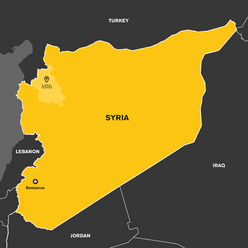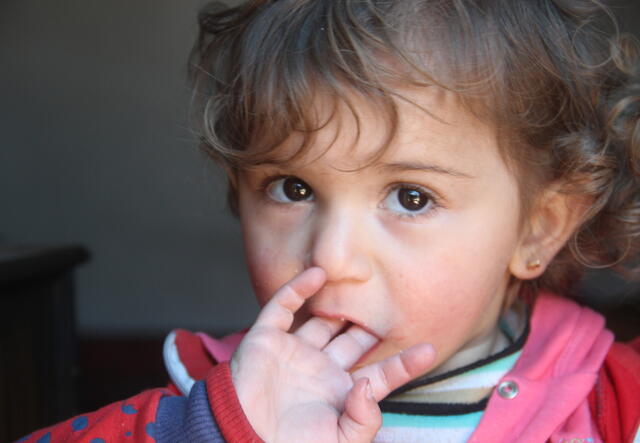Hardships are mounting for Syrians in Idlib, where thousands are facing constant airstrikes, chronic shortages of food and medicine, and widespread unemployment.
The province is home to 2.6 million people, nearly half of whom are displaced from elsewhere in Syria as a result of seven years of civil war.
Abdullah*, a 27-year-old community health worker with Syria Bright Future, one of the International Rescue Committee’s Syrian partner organizations, says depression and other mental health problems are rampant across Idlib.
More than 50 percent of Syria’s population is in need of mental health support. Even before the war began, the country of 22 million had just 100 psychiatrists. According to the World Health Organization, around half of them have since fled the country.

Abdullah describes what it’s like to provide psychosocial support on the front lines of Syria’s war and the trauma experienced by civilians, including himself:
The bombs and missiles are getting stronger by the day—there were two weeks of continuous attacks. When it’s calm, my colleagues and I make home visits to provide psychological support to individuals and families, but if there is fighting in the area, we can’t leave the health center. We are still working and we try not to stop. But recently, we had to stop working altogether for one day because of the intense fighting.
In Idlib, about 90 percent of depression cases are caused by the war. People are sad. They tell me: “I hate myself and do not love anything.” There is the constant fear of being displaced from their homes.
Before the war, I remember wanting to graduate [from university], to get a job, to get married and build a house. Now, my family is broken. One of my brothers died in the bombing and another fled. Some of my sisters left too.
One of my sisters who stayed was diagnosed with depression after my brother died. She was so sad about what happened to our family. She felt isolated and unable to do things around the house or activities she usually enjoyed doing. She’s now on antidepressants and has shown great improvement. I have tried to support her along the way.
My younger brothers have no future because there are no schools left—they are open a couple of days a week, and when one school is hit, the others close out of fear. Schools are being used as shelters because they are safer than houses. Children are afraid: We are worried about their mental health and inability to go to school.

About a week ago, I went to visit a family at their home—you couldn’t imagine the situation. I found four men between the ages 18-40, all of them paralyzed with mental disabilities. Both parents are old and cannot work.
It was raining hard that day and they didn’t have a heater. They said: “Please just bring us medicine.” Frankly, they needed more than just medicine: they needed heaters and food, and relief from their poverty.
A week later, I brought a car to take them to see a doctor, but as we were driving, the fighting began again. We couldn’t go on so we had to turn back. I couldn’t take them to the doctor. I could only give them two bottles of medicine. The situation impacted me a lot, I stayed in a bad mood all day.
Before the war, we had money and our economy was good. Now, poverty is everywhere. Everything is expensive, from bread to vegetables to fuel. Only a small amount of aid comes through. So many people borrow from others or beg on the streets. It’s worst for the poorer families—for example, they can only eat meat every two-to-three months. Eggs are rare, milk is unaffordable. We have cases of malnutrition among children.
I work to make a living, but I also work because of the impact of war on people. Sometimes I have no hope—but the hope comes back when I see the positive impact of my work. It comes back when I am able to give people support and motivate them in a positive way.
I face a lot of trauma in my daily life so this job has helped me too. It helps me believe there are still good things in life, that we can do something to change lives, that people still care about each other.
The IRC in Idlib
The IRC has been providing primary health care and emergency cash support to vulnerable Syrians in Idlib province. We also support a health center in Idlib, run by the Syrian aid agency Syria Bright Future. Six community health workers based at the center provide individual counseling, educational sessions on mental health disorders, and other psychosocial support at the center and during home visits.